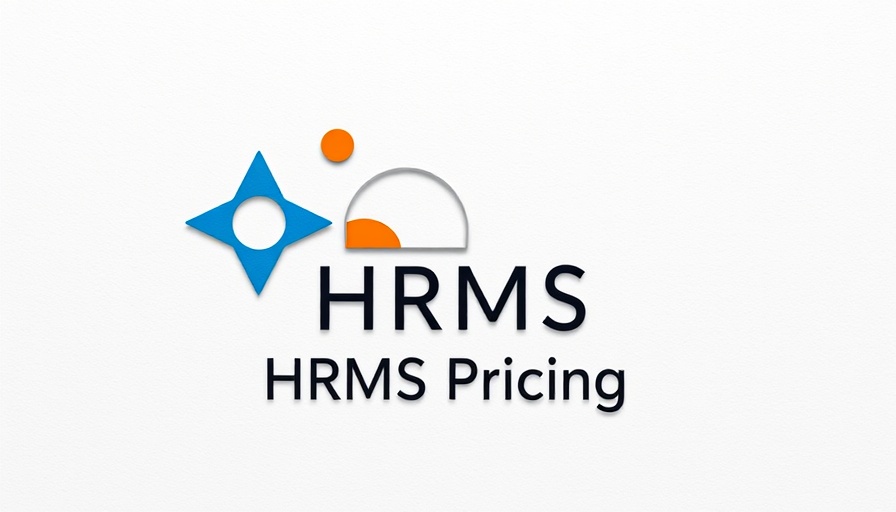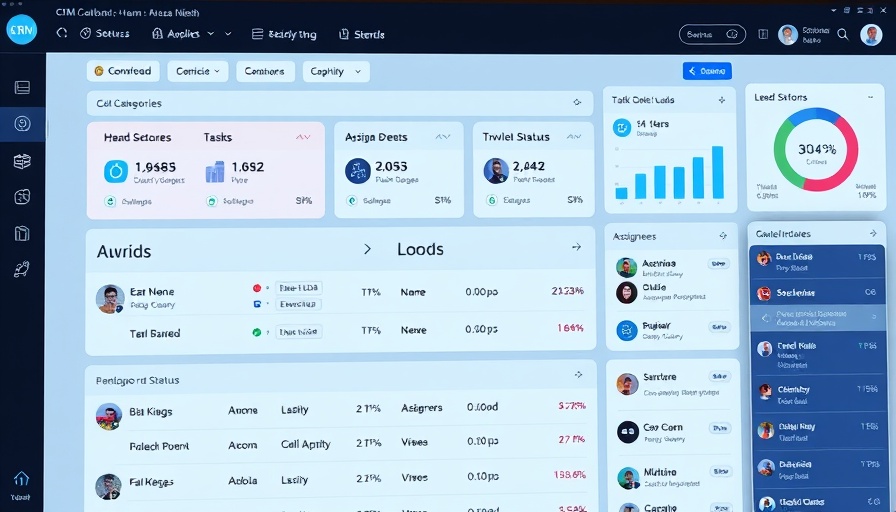
Understanding the Costs of HRMS: A Guide for Business Owners
In today's competitive landscape, having the right Human Resource Management System (HRMS) is not just beneficial—it's essential for businesses striving to scale. However, the pricing for these systems often carries complexities that can leave business owners feeling overwhelmed. If you're generating between $2M–$10M in annual revenue and looking to invest in an HRMS, unpacking these costs will set the foundation for informed decision-making.
What Is HRMS Pricing?
HRMS pricing refers to the various costs associated with utilizing a Human Resource Management System. It encapsulates key business functions such as payroll, benefits administration, attendance tracking, and employee records management. Most systems adopt a per-employee, per-month pricing structure which can vary significantly depending on company size, feature set, and customer support quality. Some offer enticing free plans, while others cater to businesses with customizable, tiered pricing plans to fit your financial goals.
Analyzing Typical Costs: What Should You Expect?
The general price range for HRMS solutions falls between $5 to $17 per employee per month. This subscription-based model allows smaller companies to benefit from scalable pricing as their workforce grows. It's important to perform a detailed cost analysis, noting whether you’re likely to incur additional charges based on features or support you might need. Transparency is crucial; hence, understanding the total cost of ownership can help eliminate surprises further down the line.
Digging Deeper: Hidden Costs and Additional Considerations
When evaluating different HRMS options, look beyond the surface-level subscription fees. Hidden costs such as setup fees, training expenses, and charges for additional features can add up quickly. Understanding these additional costs will empower you to justify the expenditure and demonstrate a clear return on investment (ROI). This is particularly crucial for business owners actively seeking funding or operating on tight budgets.
ROI: Proving the Value of Your HRMS Investment
The potential ROI of an effective HRMS system can extend far beyond mere dollar savings. Increased efficiency, improved employee satisfaction, and streamlined payroll processes are just a few ways that investing wisely in an HRMS could benefit your business. In an era where AI is progressively becoming integrated into HR solutions, adopting these technologies could not only help in optimizing operations but also frees up valuable time that can be redirected toward scaling your company culture.
Key Questions to Ask Before Choosing an HRMS
Before making a commitment to an HRMS vendor, asking the right questions is paramount. Consider inquiring about customization options, data security protocols, customer support accessibility, and upgrade paths. Engaging with potential suppliers could provide insight into how the system aligns with your long-term strategic objectives, aiding in the seamless integration of HR operations and business growth.
Ultimately, understanding the landscape of HRMS pricing can not only help you secure a system that supports your team's needs but will also enhance your organization’s workplace environment. With the right tools in place, you can focus on what’s most important—cultivating a thriving company culture and scaling your business effectively. As you step toward enhancing your HR infrastructure, take the first steps with confidence by delving into this domain and choices that await you.
Ready to streamline your HR processes and elevate your workplace? Explore how adopting the right HRMS can foster exceptional company culture and leadership today!
 Add Row
Add Row  Add
Add 



Write A Comment